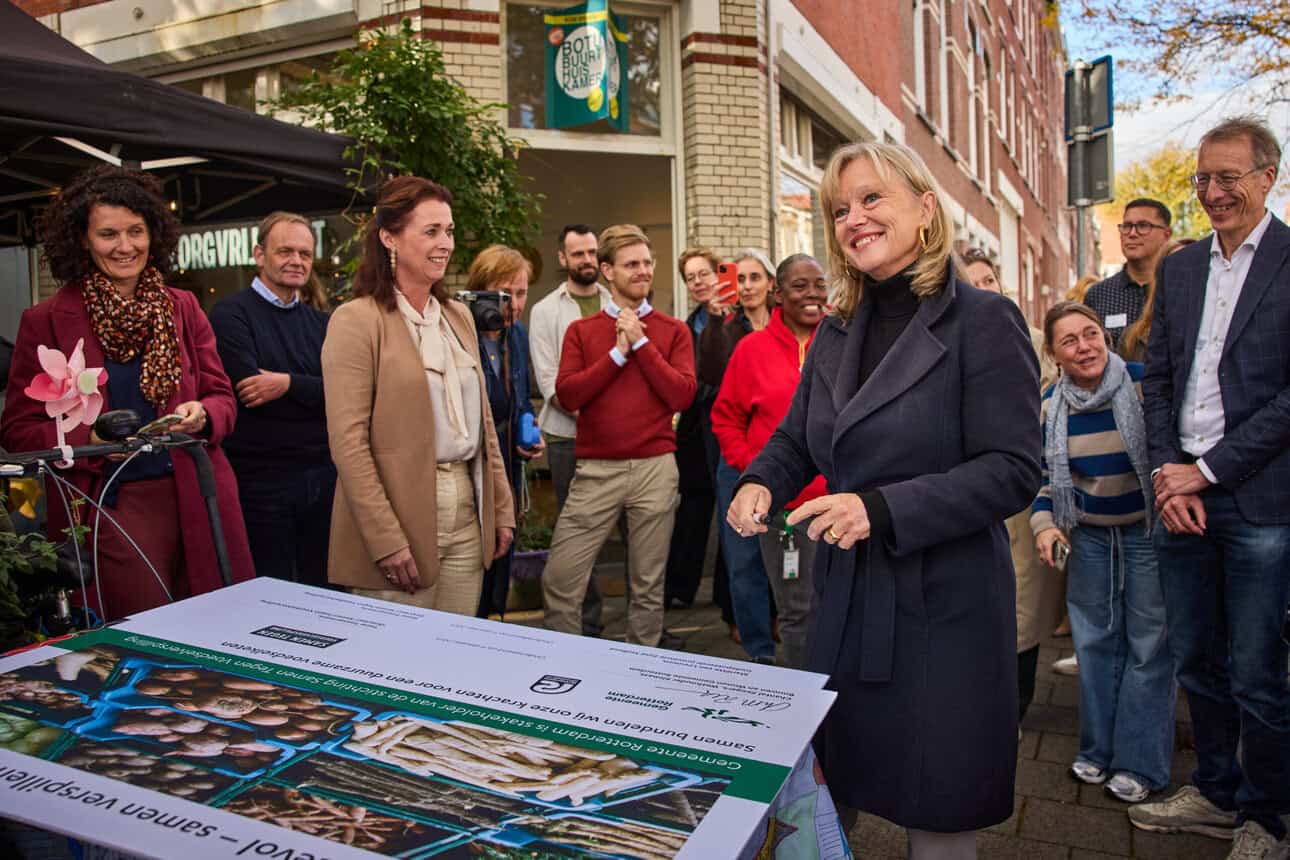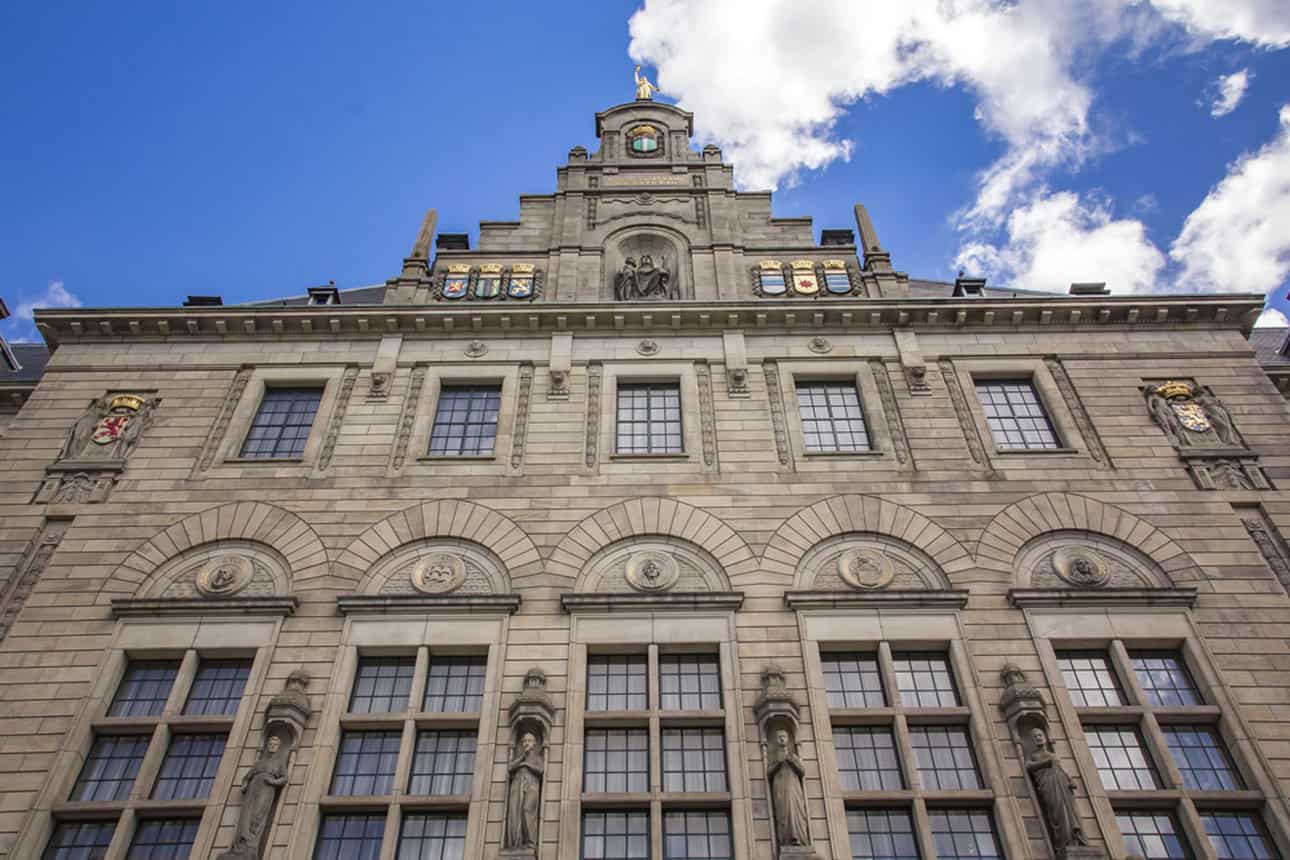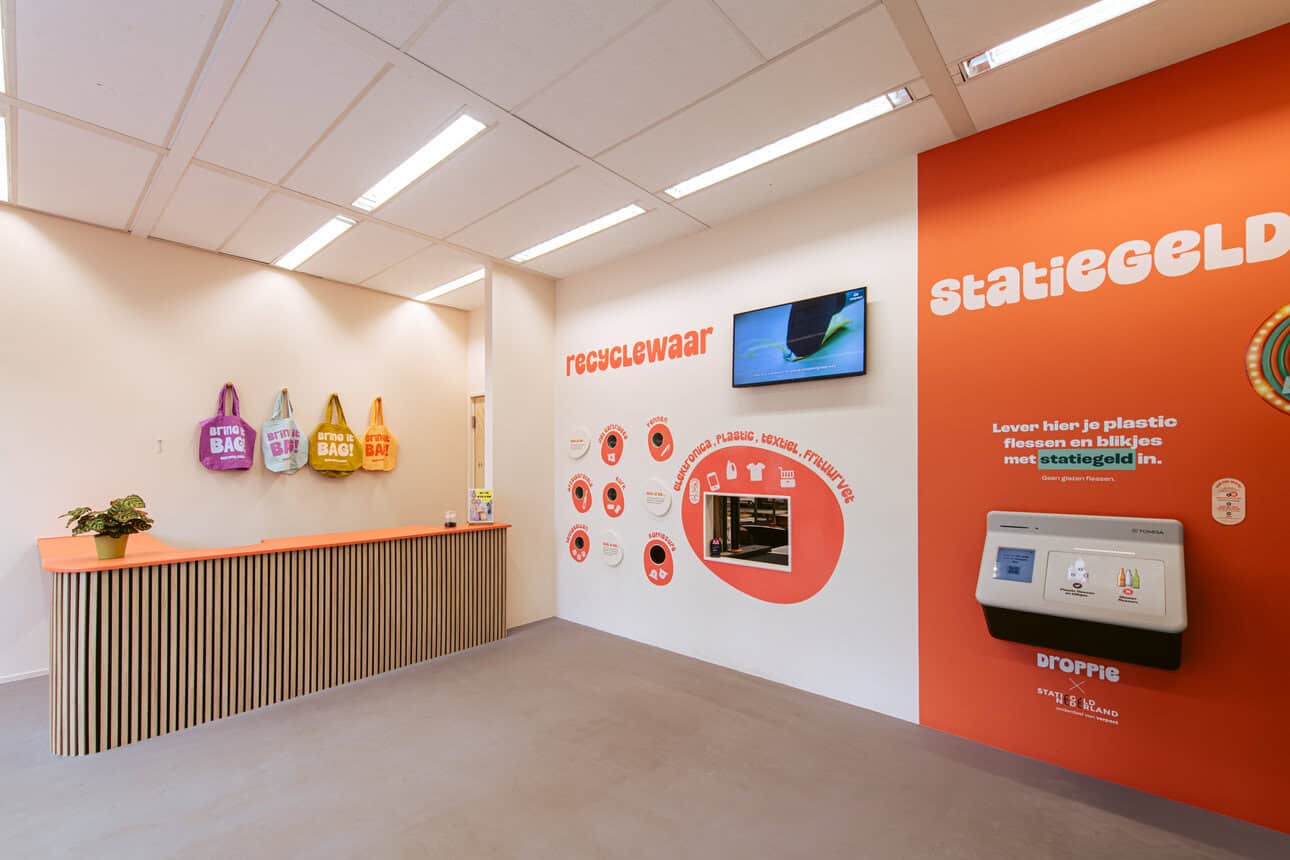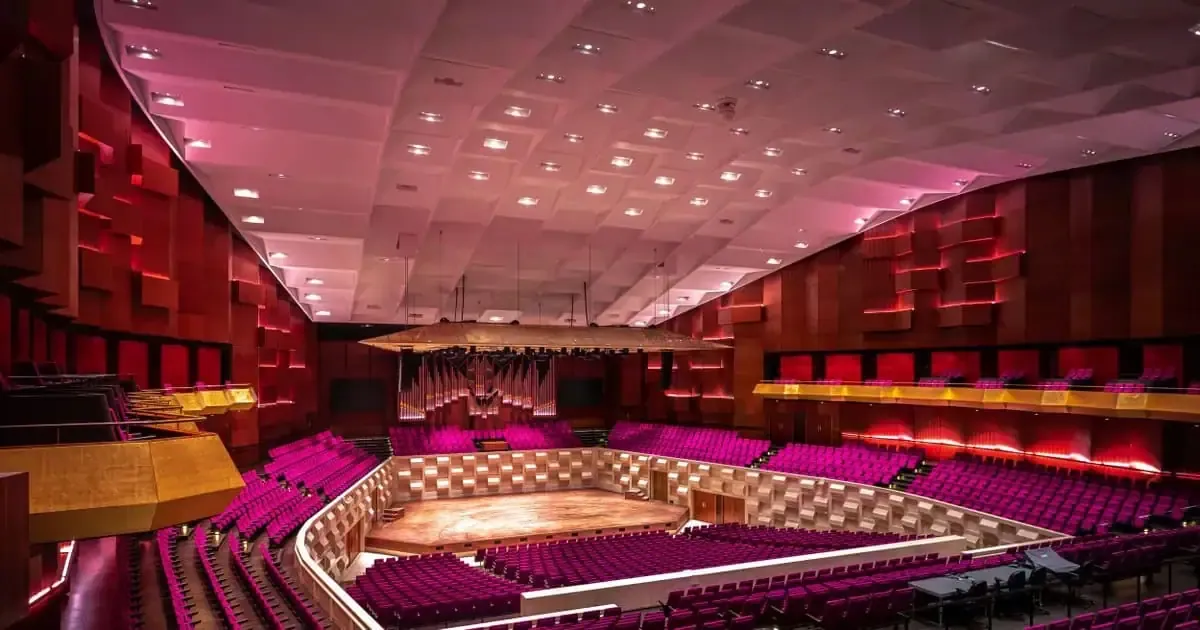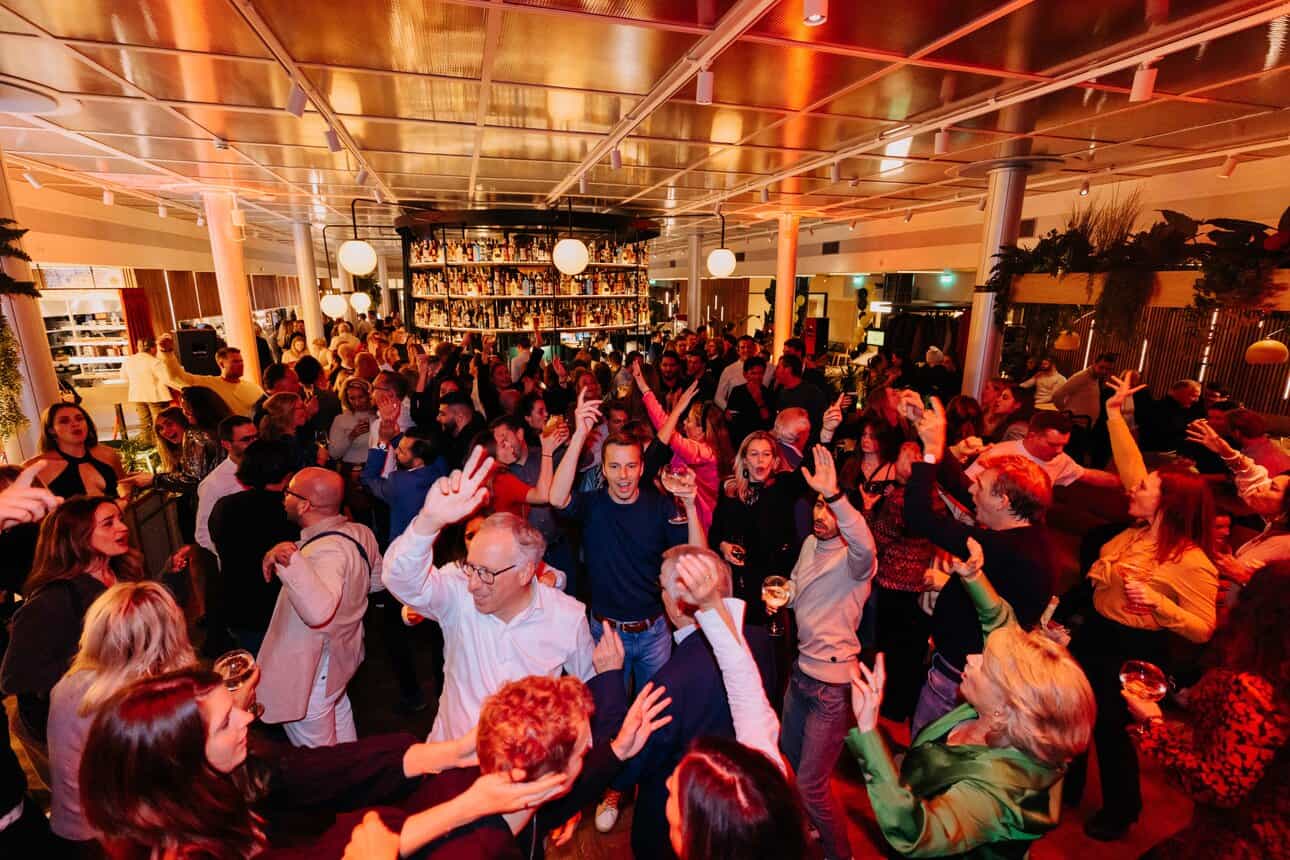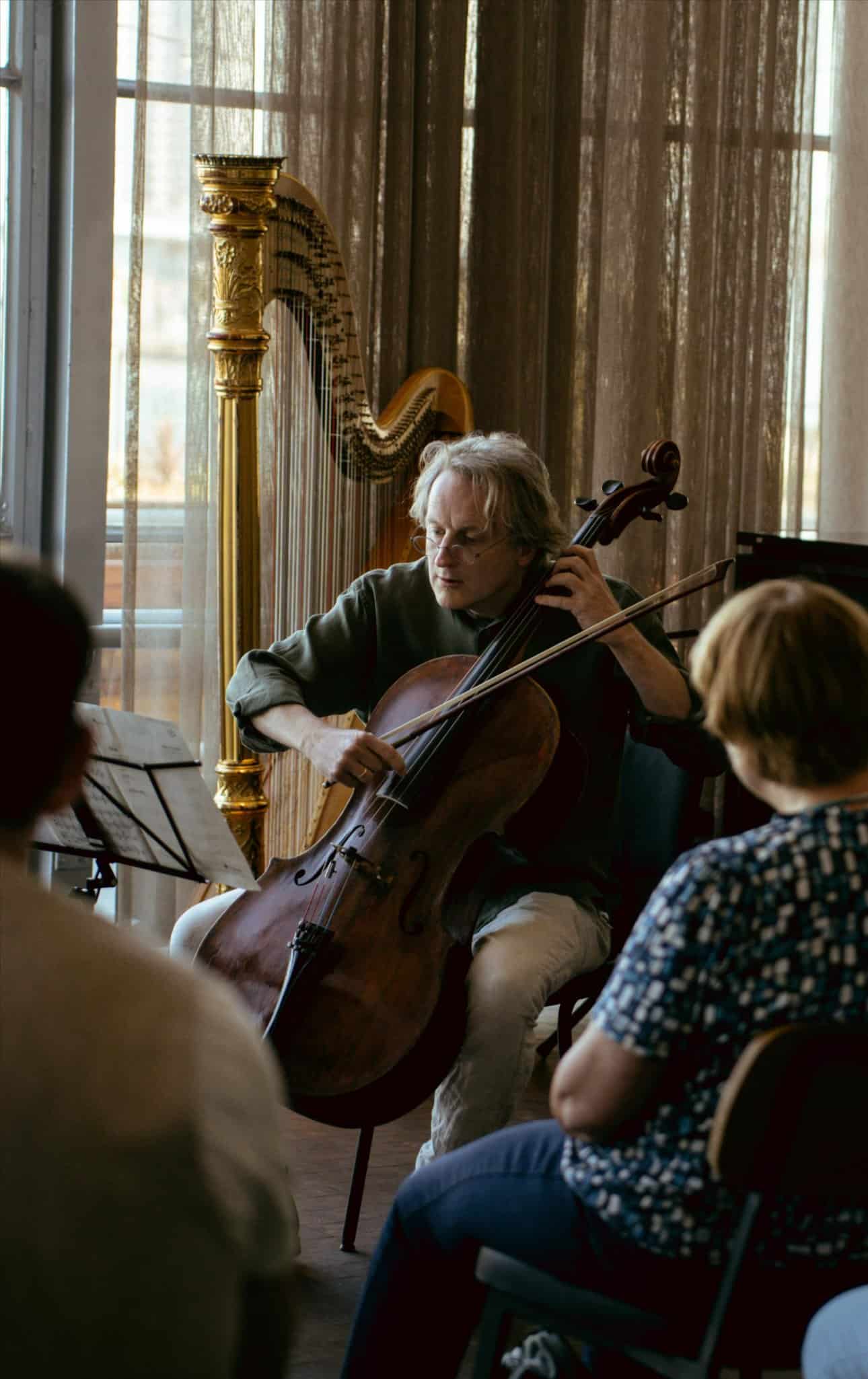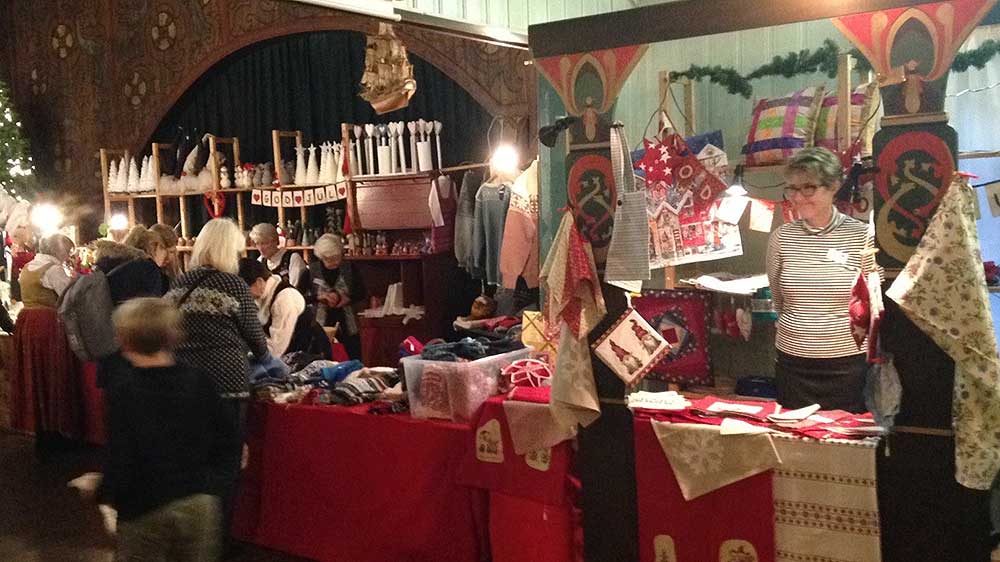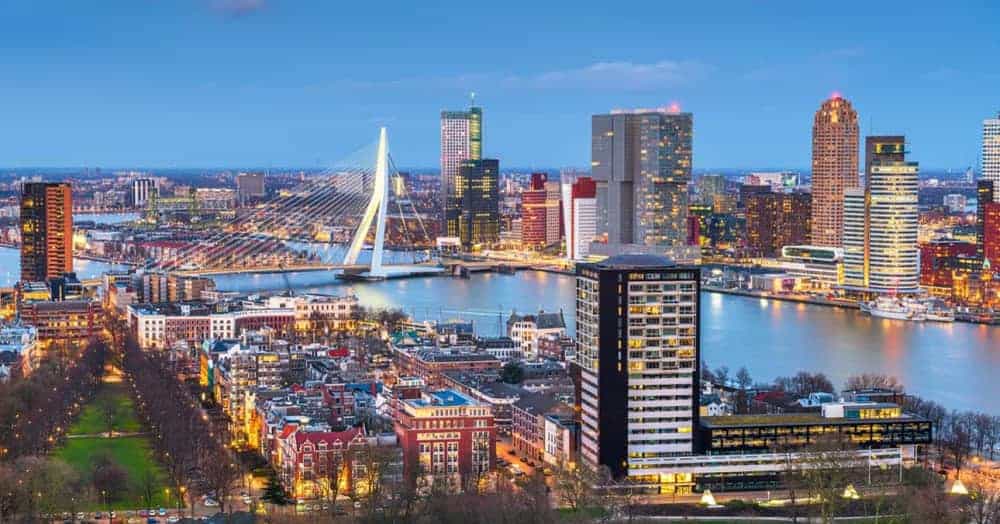
Rotterdam achieves downward trend in CO2 emissions
The energy transition in Rotterdam has got off to a flying start. Since 2019, almost 3 megatons of CO2 have been saved.
ROTTERDAM, 4 March 2021 - Rotterdam has succeeded in turning the annual increase in CO2 emissions into a downward trend. This is apparent from the DCMR environmental service's reckoning of Rotterdam's emission figures. The reduction of CO2 emissions was one of the objectives of the city council when it took office in 2018 and of the Rotterdam Climate Accord that was concluded in 2019. Today, climate alderman Arno Bonte and the chairmen of the five Rotterdam climate tables present the progress of the Rotterdam climate approach.
More than one hundred parties are working within the Rotterdam Climate Agreement on 55 climate deals with the aim of halving CO2 emissions within ten years. "I am proud of what we have achieved so far. The energy transition in Rotterdam has got off to a flying start. The entrepreneurs, businesses, social organizations, housing corporations and individual Rotterdammers who have contributed to this, deserve a big compliment", says Rotterdam's climate alderman Arno Bonte.
According to the reckoning, almost 3 megatons of CO2 have been saved in Rotterdam since 2019. DCMR, the environmental agency, forecasts that, based on the agreements made, another 9 megatons of CO2 will be reduced by 2030. "So the downward trend continues," notes alderman Bonte. But he warns against too much optimism. "It won't happen by itself. We will have to continue to do everything in our power to achieve the halving of emissions within ten years. The construction of offshore wind farms, the realization of new infrastructure for green hydrogen and the large-scale use of industrial residual heat to heat homes are essential in this respect. We desperately need our partners in Rotterdam, but the help of central government is also indispensable. We are therefore counting explicitly on the support of the new cabinet.
In 2019, the Rotterdam Climate Agreement started with 49 climate deals, 6 more were added in the past year. The climate deals are projects or programmes that focus on accelerating the energy transition and realizing CO2 savings. For example, the Fieldlab Industrial Electrification has been opened, a testing ground for innovations in electrification of industrial processes, a plan has been developed for the construction of the largest green hydrogen plant in Europe and 50,000 solar panels have been installed on Rotterdam roofs. Furthermore, the climate deal 'Rotterdam against food waste' saved 62,000 kilos of food waste, which is equivalent to 250 tons of CO2 reduction. The intercepted food was given a valuable (re-)use in social restaurants.
More information about the Rotterdam Climate approach can be found at www.energieswitch010.nl.
How about a live show tonight?
Special events happening soon
HAPPENING 31 DEC 2025 | Pesca Rotterdam is preparing a New Year’s Eve built around a long walking dinner, live music and a…
Music for Breakfast: Rotterdam Philharmonic Sunday Concerts
HAPPENING 14 DEC 2025–17 MAY 2026 | The Rotterdam Philharmonic Orchestra introduces Music for Breakfast, a new series of intimate…
Christmas Markets in and around Rotterdam
If the dim daylight, the early dark and the general wetness of the season threaten your mood, Christmas markets in and around…
Winter Wonderland at Rotterdam Ahoy: ice rink, family shows and music
HAPPENING 29–30 DEC 2025 | Rotterdam Ahoy is hosting a new two-day winter event on 29 and 30 December, built around a large…
How about a live show tonight?
Special events happening soon
New Year’s Eve at Pesca Rotterdam with walking dinner
HAPPENING 31 DEC 2025 | Pesca Rotterdam is preparing a New Year’s Eve built around a long walking dinner, live music and a…
Music for Breakfast: Rotterdam Philharmonic Sunday Concerts
HAPPENING 14 DEC 2025–17 MAY 2026 | The Rotterdam Philharmonic Orchestra introduces Music for Breakfast, a new series of intimate…
Christmas Markets in and around Rotterdam
If the dim daylight, the early dark and the general wetness of the season threaten your mood, Christmas markets in and around…
Winter Wonderland at Rotterdam Ahoy: ice rink, family shows and music
HAPPENING 29–30 DEC 2025 | Rotterdam Ahoy is hosting a new two-day winter event on 29 and 30 December, built around a large…
About RotterdamStyle
RotterdamStyle.com is the largest and most popular online platform for expats and long stay tourists in Rotterdam.
Business inquiries
We're always open to receiving press releases or business inquiries. Just send us an email at hello [@] rotterdamstyle.com.
Acquire us
We're looking to get acquired by a startup or enterprise with deep pockets. Go ahead, make us an offer we can't refuse. ;-)

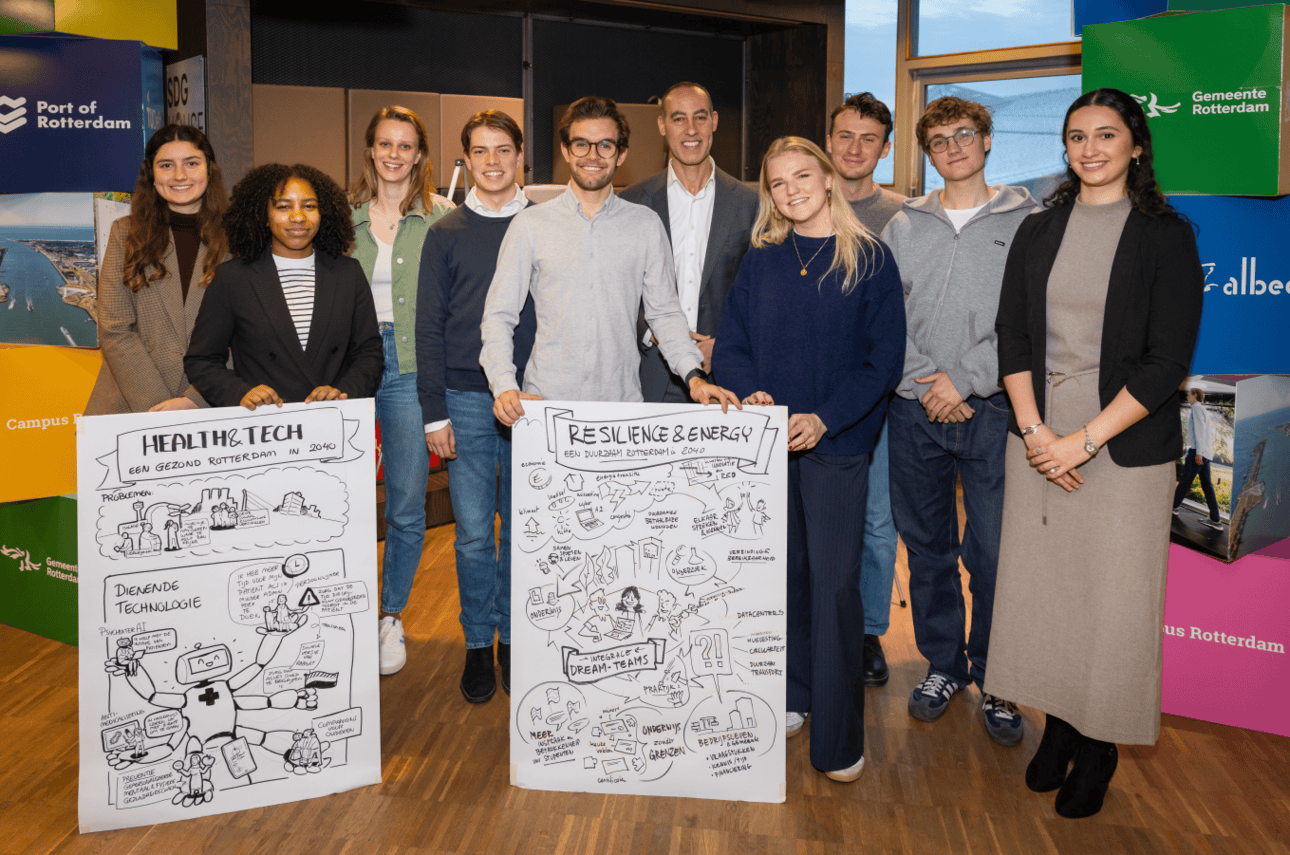
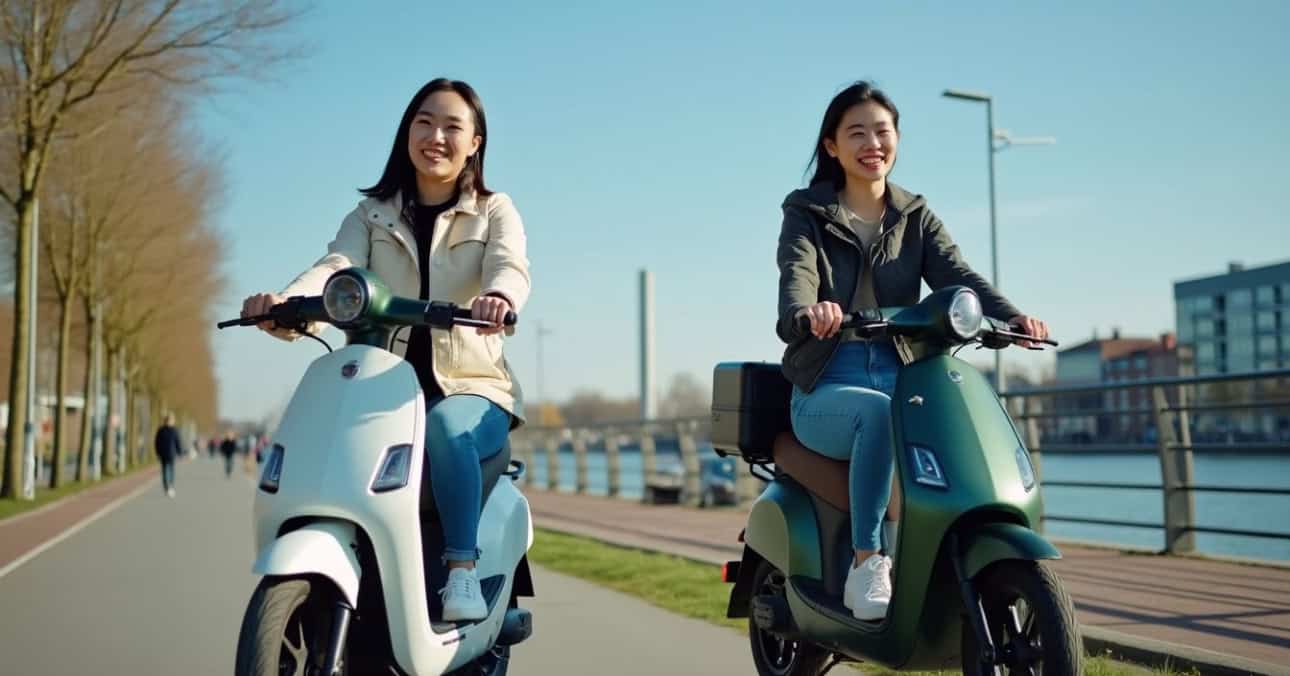
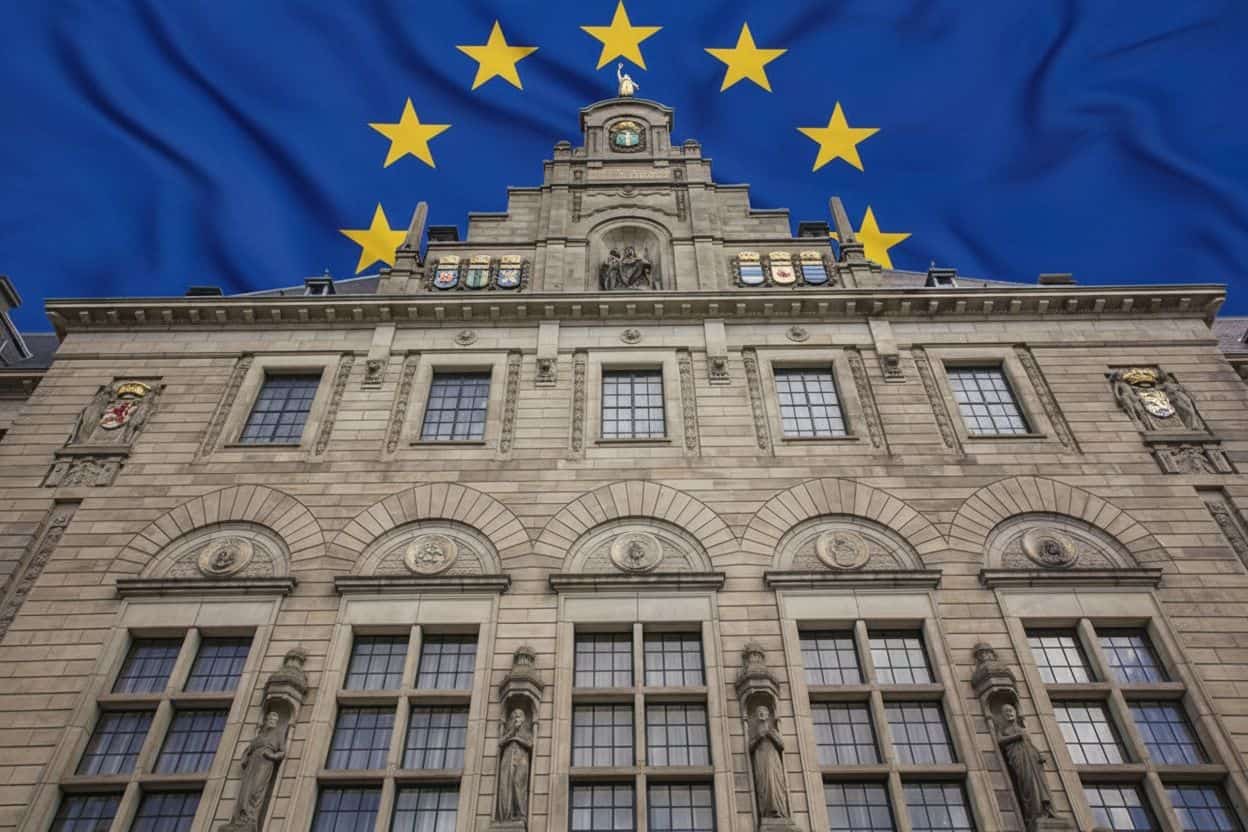
.png)
